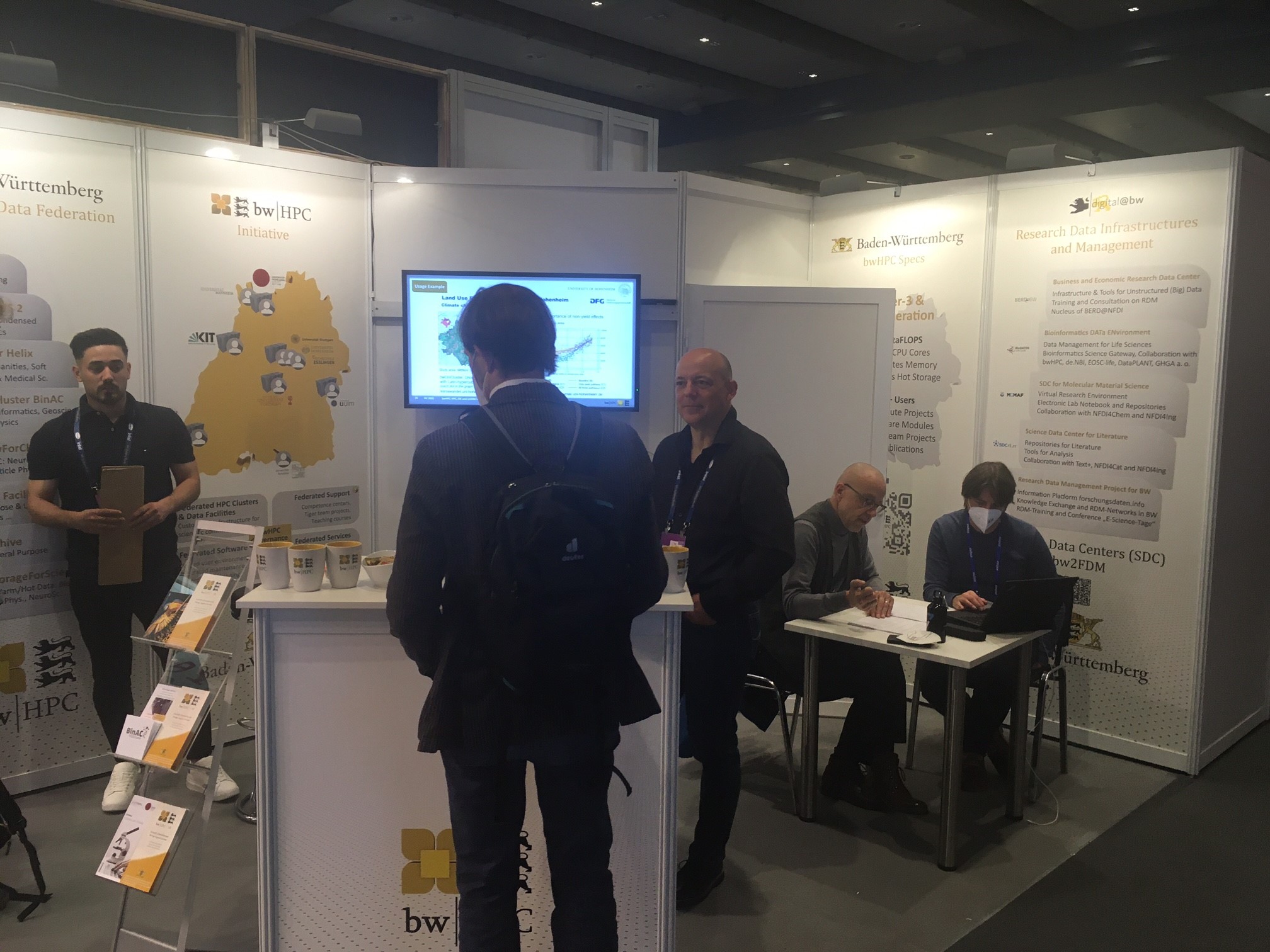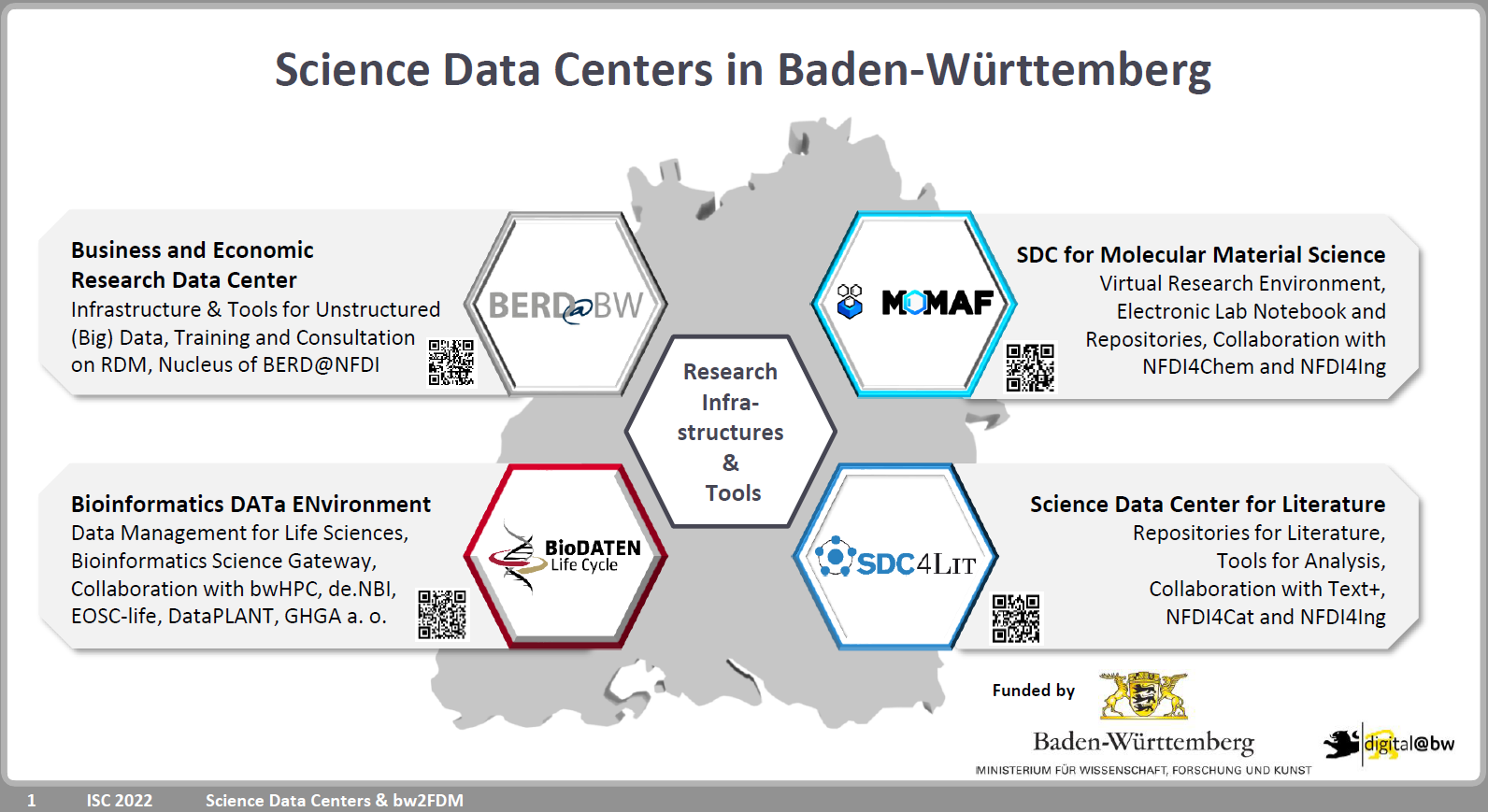News
BioDATEN @IWSG 2022 in Trento
- Published on Monday, 20 June 2022
Mountains, Italian food and science gateways - Part of the BioDATEN project team and the NFDI GHGA team presented work related to science gateways at the 14th meeting of the International Workshop on Science Gateways at the University of Trento between 15-17 June 2022.
Science gateways represent a framework to implement, integrate, and provide service to a scientific user community. But often additional requirements have to be met and other tools have to be used to implement and link e.g. data publishing, search, and metadata annotation. Instead of integrating every necessary function or tool into a monolithic science gateway, the Science Data Center BioDATEN experiments with a lateral approach. A HUBzero-based science gateway is implemented in parallel to other components such as InvenioRDM for data publishing, VuFind for data search, and a homebrew tool to annotate metadata. These components are connected by a single sign-on infrastructure that offers seamless user integration. This topology in combination with the tools and services implemented helps to make research data FAIR data while reducing effort and enhancing usability.
The talks, discussions, and presentations were accompanied by an event that - luckily - took place at the same time in Trento a very good conference dinner. Thanks again to the organisers of the 14th IWSG. The 15th IWSG will take place at the University of Tübingen.

(HG)
BioDATEN @ISC 2022 in Hamburg
- Published on Wednesday, 01 June 2022
The Science Data Center BioDATEN was participating in this year's International Supercomputing Conference 2022 (ISC) held in Hamburg. It was part of the booth sponsored by the Ministry for Science, Research and Art of the state of Baden-Wuerttemberg. The staff presented and informed visitors about the the science supporting infrastructure and personnel support projects (bwHPC clusters and bwHPC-S5 support project) as well as about BioDATEN and the other three Science Data Centers.
Additionally, the fair and conference offered the opportunity to get informed on recent technologies in the domain of HPC and cloud computing infrastructure as well as new developments in storage and fast interconnect systems. As both supporting infrastructure providers of BioDATEN are about to upgrade their compute clusters, this event offered valuable input.
Thanks to the organisers of the ISC 2022, the organisers of the bwHPC booth and bw2FDM for the opportunity to present the SDCs to a larger audience!


(DvS, HG)
Proceedings of the 2021 E-Science-Days with BioDATEN contribution available
- Published on Monday, 25 April 2022
Research data management (RDM) and open data is an important topic will receive further attention in the time to come. One goal of BioDATEN is to be part of RDM related processes and to shape RDM for the bioinformatic community. The recently published proceedings of the E-Science-Days 2021 give the RDM community an overview of current trends and include a BioDATEN contribution about science gateways.
Research data management is not just “Upload your data to this repository” or “Use CC by for your data” but a rather a whole bunch of topics. Events like the E-Science-Days help the RDM community to get an overview of current approaches, topics, and developments as well as to network with other community members. The E-Science-Days 2021 proceedings cover the complete range of topics such as software to build a data repository, new training approaches, legal aspects of data sharing, infrastructure, and the NFDI consortia. Next to BioDATEN, the Science Data Centres BERD, MoMaF, and SDC4Lit submitted contributions, too. Also, the (award-winning) BioDATEN work on a science gateway got published as well as an overview of bwSFS – whose infrastructure is also used by BioDATEN – and some papers covering the NFDI4Plants approach.
(HG)
